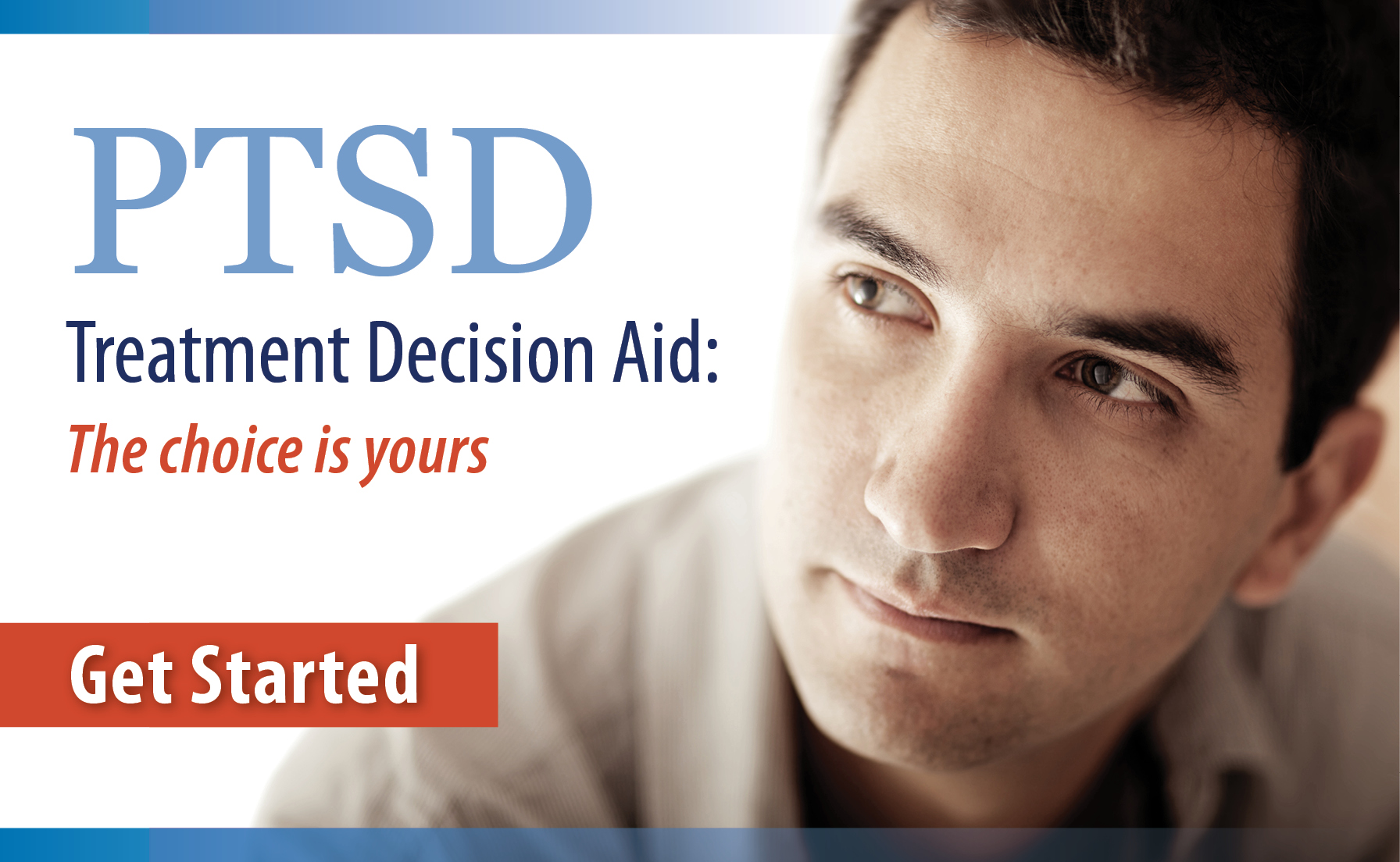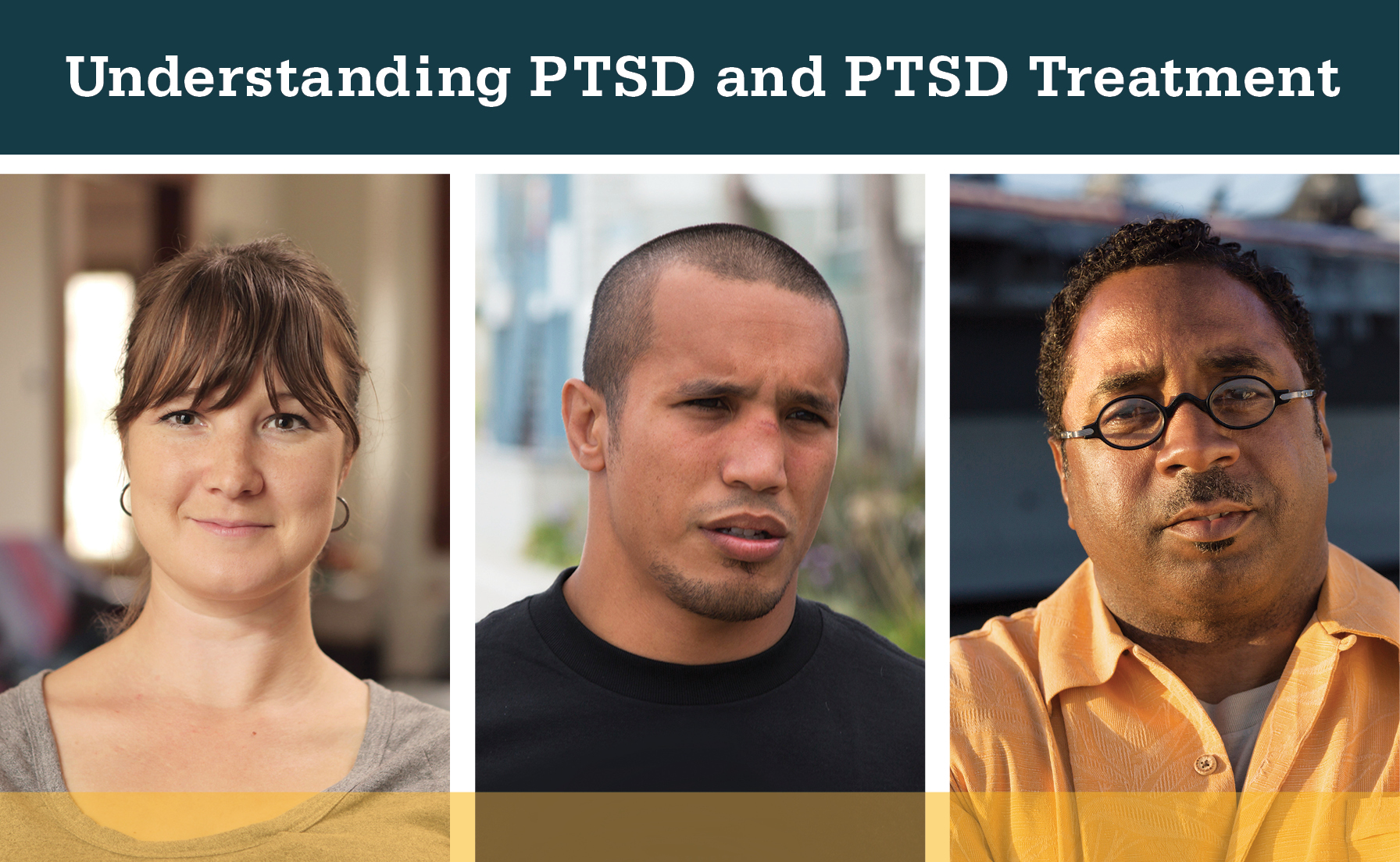Understanding PTSD Treatment
Understanding PTSD Treatment
Treatment Basics
PTSD treatment works. Those who have gone through trauma can learn to feel safe in the world and cope with stress. And you have options. Working with your health care provider, you can decide together which treatment is best for you based on benefits, risks, side effects and other preferences.
Talk Therapy
Talk therapy—or psychotherapy—includes talking to a mental health care provider (like a psychologist or counselor) to treat PTSD.
Talk therapies with the most support are trauma-focused
Evidence shows trauma-focused psychotherapies are the most effective treatments for PTSD. "Trauma-focused" means you will focus specifically on the memory of the traumatic event or its meaning in therapy. There are different kinds of trauma-focused psychotherapy, but those listed below have the most research support:
- Cognitive Processing Therapy (CPT)
CPT teaches you how reframe negative thoughts about the trauma. - Prolonged Exposure (PE)
PE teaches you how to gain control by facing your negative feelings and doing some of the things you have avoided since your trauma. - Eye Movement Desensitization and Reprocessing (EMDR) for PTSD
EMDR helps you process and make sense of your trauma while paying attention to a back-and-forth movement or sound (like a finger waving side to side, a light or a tone).
Other talk therapies with some research support
There are other psychotherapies that are suggested for PTSD, but the research behind these treatments is not as strong as the research supporting the 3 trauma-focused therapies listed above. The options below may be helpful if the best supported treatments are not available or if you are not interested in trauma-focused psychotherapy.
- Written Exposure Therapy (WET)
WET involves writing about your trauma during sessions and discussing your reaction to the writing assignments with your provider. - Cognitive Therapy for PTSD (CT-PTSD) CT-PTSD helps you learn to change thoughts about your trauma. You will revisit the trauma memory to develop meaning for what happened and change negative
- Present-Centered Therapy (PCT)
PCT focuses on learning how to deal with current life problems related to your traumatic experience or PTSD symptoms. This is not a trauma-focused talk therapy.
Medications
Certain medications can be used to treat PTSD symptoms. Learn more about which medications are most effective for PTSD and which medications are not recommended.
- Medications for PTSD
Medications that have been shown to be helpful in treating PTSD symptoms are some of the same medications also used for symptoms of depression and anxiety. - Benzodiazepines and PTSD
Some medications, including benzodiazepines (or "benzos"), are not recommended for PTSD. Benzodiazepines are medications given by a doctor to improve anxiety and sleep. They do not help with PTSD symptoms and can have serious side effects over time.
Getting Started and Checking In
The articles below give basic information about how to get started with treatment and how to know if your treatment is working for you.
- Why Get Treatment?
Deciding to get help and taking the steps to start can be hard. Learn why getting help for your symptoms is the best thing you can do to get your life back on track. - Choosing a Treatment
There are several effective PTSD treatments. This means you have options. Learn how you can work with your provider to choose the best treatment for you. - Types of Providers
Many types of professionals provide evidence-based talk therapy and medication to people who go through trauma. Learn about the training and education of these mental health providers. - Signs of Good PTSD Care
In the best cases, people see PTSD symptoms get better while in treatment. But some people may not feel satisfied or feel they don't see progress. Learn 4 signs of quality PTSD care and how you can be an active player in your treatment.
Which PTSD Treatment Is Best for You?
PTSD Treatment Decision Aid: No one treatment is right for everyone. Learn about effective treatment options. You can read about different treatments, hear advice from people who have been through these treatments, and watch videos of providers explaining how the treatments work. You can also build a chart to compare the treatments you like the most and print a personalized summary that lists your symptoms, treatment preferences, and questions to share with your provider.
You May Also Be Interested In


























